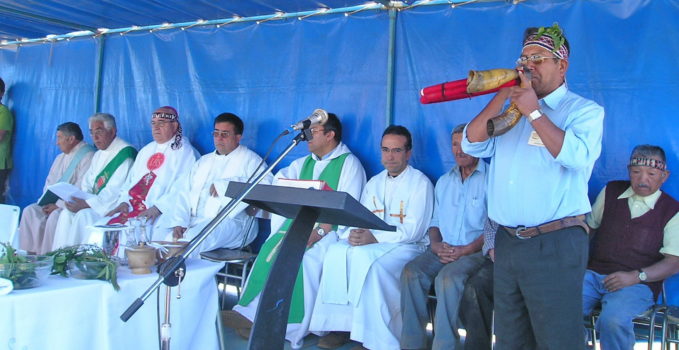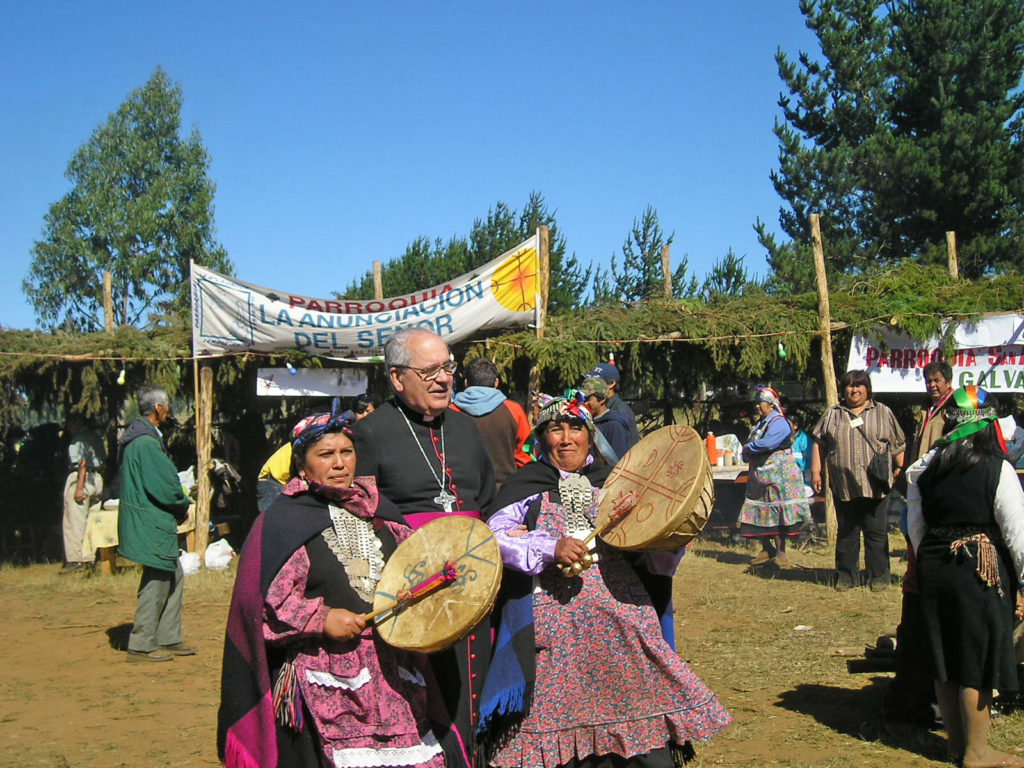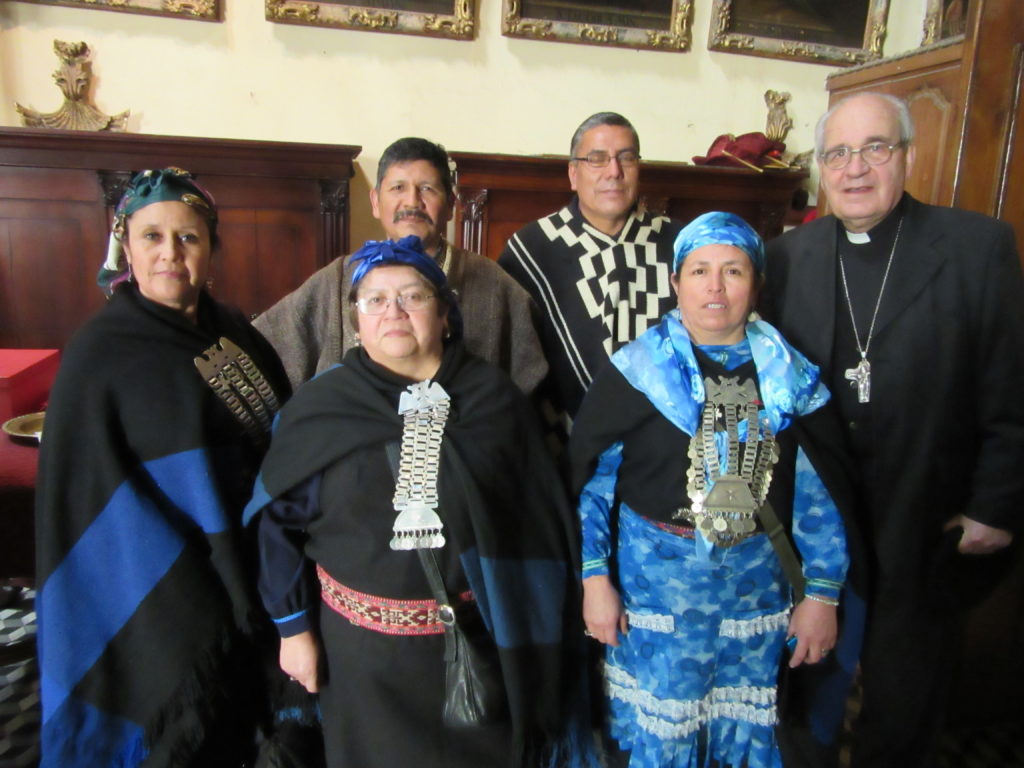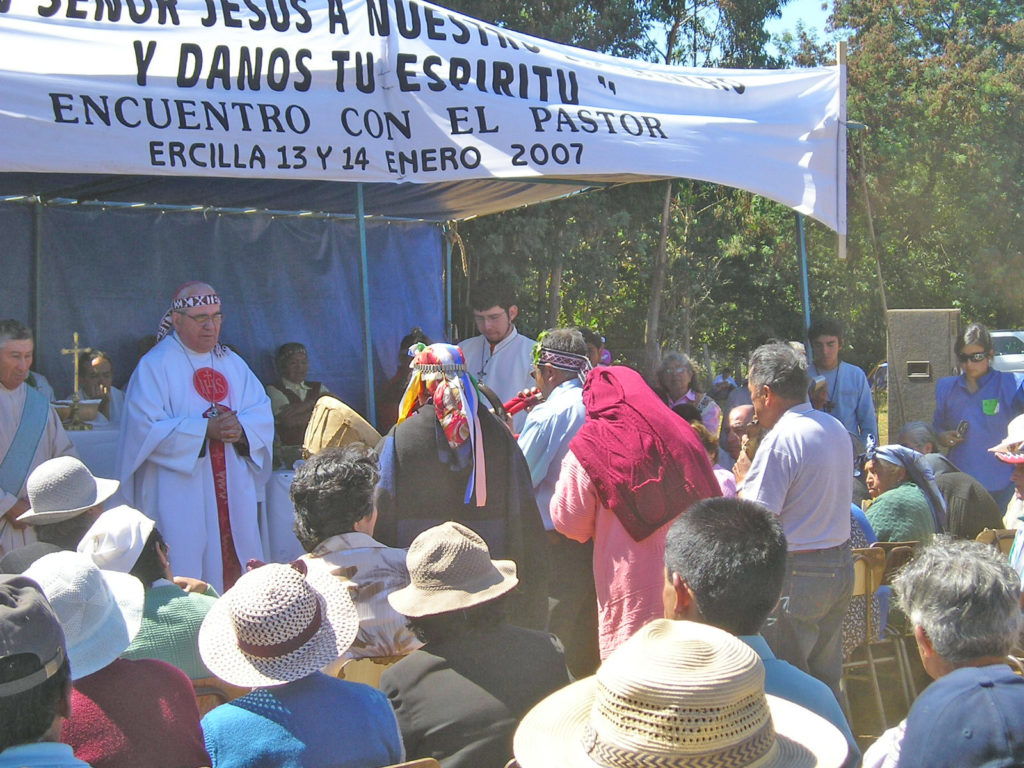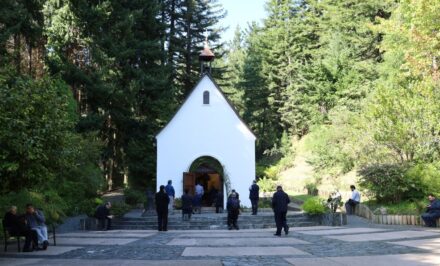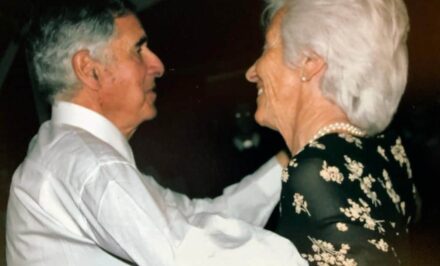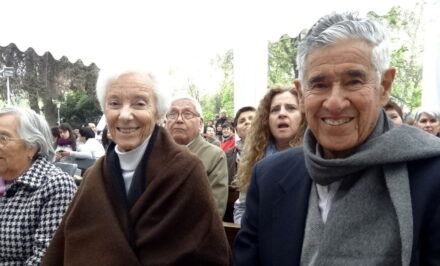CHILE, Fernanda Faúndez Cabrera •
In the Church, the Mapuche people’s situation has been a constant concern, always looking for channels of dialogue that facilitate living together in peace, valuing and integrating the cultural richness of this and of other native peoples who inhabit and belong to our country. The road of understanding, of integration of peace is a long one, but it has to set out today with a positive disposition, an open mind and generosity of heart. In this time of mercy, it is everyone’s job.
This is how Bishop Manuel Camilo Vial (Schoenstatt Father) understood it during the years that he was Bishop of Temuco (2001-2013). He paid special pastoral attention to them in his task as shepherd. It is for this reason that we wanted to interview him, so that his words will help us discern a sign of God that is very important for Chile.

After living for more than ten years in Temuco, how was your experience and work with the Mapuche communities?
– I have been aware since I was small, because of trips of Lobatos: my father’s work. In 1967, I was appointed pastor of Perpetual Help, and I was part of the bishop’s pastoral team, it included a ministry with the Mapuche people. In 2001, Pope St. John Paul II appointed me bishop of Temuco, a position that I carried out until 8 July 2013.
What pastoral activities did you carry out in the Diocese San José de Temuco with the area’s indigenous people?
– Certainly, there are no distinctions, the Mapuches are in all communities and parishes, and there is great respect and assimilation. However one must recognize that there is not enough knowledge about their culture, their traditions and their philosophy of life. Their religious tradition is respected; there are a large number of Catholics, Evangelicals and other denominations.
In 1962, the Bishop of Temuco, Benardina Piñera, and the Bishop of the Vicariate of Araucanía, Guillermo Hartl, created the Indigenous Institute Foundation with a mission of accompanying the Mapuche’s people, families and communities. The Foundation has played a vital role in all the southern dioceses where Mapuche communities exist. Today their presence is operating in the different matters experienced in the ninth Region.
What was done in education and social training of the Mapuche people’s leaders is very important and in the defense of their human and social rights. The roles that the “Cultural Centers” played at the end of the ‘70s deserve special mention. Bishop Contreras already spoke about the recognition of the Mapuches as a people.
It is a different culture, with their own beliefs and identity, how does the Church become a part of their rituals and traditions?
– It is very important to remember that it is a different culture, if one wants to dialogue and understand how these people act and think. It is perhaps, the most important task that we have to address in order to resolve existing problems.
As to our participation, currently it is one of respect. I participated as a guest in some ceremonies. On our part, and concretely in the celebration of the Eucharist, we incorporated the rite of purification, or forgiveness that they are used to doing, incorporation of the blessings and petitions, participation in the “We tripantu” [Mapuche New Year celebration].
Mapuche conflict
The Araucaní area experiences the “Mapuche conflict.” How did you confront the difficult times?
In my opinion, it is not good to use the term “Mapuche conflict.” I think that as a starting point there should be a distinction: the Mapuche subject is one thing and the conflicts that appeared throughout history are another, and it makes it difficult to address the subject properly.
Personally I believe that the fundamental problem is that the majority, in the country, have not given sufficient weight to this subject. We do not know the Mapuche people, or their culture, their customs, philosophy of life and their traditions. These people have their own identity. We know very little about their history, since the arrival of the Spanish, and what has developed until our time that includes very hard dramatic times, which have left very profound marks on them; violence, deaths, harassments, encroachments, stolen lands, marginalization, abandonment and poverty, etc. And on part of the “winkas” (foreigners) great prejudices and labeling; they consider them lazy, thieves, drunkards, and other derogatory epithets, which are very unfair in the majority of the cases. That is why the efforts that have been made sporadically are very important, but they have not been maintained consistently to address and to solve problems.
The work that the Commission of Historic Truth carried out that the former-president of the Republic, Patricio Aylwin A., spearheaded was very important. He insisted on the need for a new treatment of the indigenous people coming from a very serious investigation on this subject.
Personally I participated in what we called the Araucanía Plan, where different sectors present in the area are represented, such as the Universities, churches of all denominations, representatives of the Mapuche people, regional authorities, the business world, farmers, workers represented by their organizations, and others. This Plan was presented to President Bachelet in a solemn session on 5 November 2009, but it was not implemented consistently.
After Plan Araucanía, important presentations have existed such as those of Senators Espina and Garcí and of the ex-mayor Francisco Huenchumilla. Currently, there is a government commission led by Bishop Héctor Vargos of Temuco.
What is the Church’s stance on the problem?
– Without a doubt, the work of the Church in Araucanía has been very important, since the arrival of the Spanish. Many missionaries brought the Gospel of Jesus to these lands, especially stressing the work of the German Capuchins who specifically congregated in the Araucanía Vicariate.
Certainly the principles of this evangelization are in the Gospel of Jesus; in the teaching of the Church at all times, Vatican Council II, in Latin America, Medellín, Puebla, Aparecida, and the Messages of the Shepherds.
In Chile, in December 1916, Archbishop Juan Ignacio González convoked the Araucanista Congress by inviting all the suffragan bishops from the archdiocese and their individual churches to grow deeper in the knowledge of “Araucanians.”
In 1979, as an echo of the post-conciliar Magisterium, the bishops from Concepción, Los Ángeles, Temuco, Araucanía Valdivia and Osorno, and the Chilean Episcopate, made known the Pastoral Letter: “For the Evangelization of the Mapuche People.”
In 1987, Pope St. John Paul II made his visit to Chile, which left us a wonderful reflection addressing the subject of the native people existing in Chile, which in my view is the best that has been expressed and written about the subject.
When you were bishop of the area, were there conversations with the government authorities? What can you tell us about those interventions?
– We always had them with the national and local governments. There was promotion of dialogue, preparation of Plan Araucanía, work with the University– dialogue with all the areas. There was a good relationship with the Mapuche people and their cause.
What is our mission as a Church with regard to the conflict that Araucanía experiences?
– There is great wisdom in the words of the Holy Father St. John Paul II. Pope Francis constantly speaks to us about “welcoming,” “to know how to see” and “to listen.” I believe that what we should do is: to accompany this people, to respect them and to announce the Gospel of Jesus to them by our example of charity, mercy and service.
Upon leaving the diocese, the communities offered a farewell, how do you remember that farewell and what tasks remain?
– It was truly touching. I had several farewells, but the main one was in Ayinrehue, the place where the Schoenstatt Shrine is located and where the Mapuches were always very well received.
A story: when Fr. Horacio Rivas and the Sisters of Mary wanted to name the place of the Shrine, we always thought it should be in Mapudungun [language of the Mapuches], and one word, the closest to the word that was the place of the Shrine: Bellavista. We spoke to a language specialist until we arrived at the name AYINREHUE, which translated, more or less means “beautiful place, holy place, worthy of being loved.”
It was a very beautiful farewell, as it is done in the Mapuche culture, with prayers, petitions, a memorial Rehue [or canelo tree] was planted (several little trees were tried with the hope that at least one would grow). We shared Mapuche food, and they gave me many gifts, a blanket of Lonko (Mapuche authority), a rug and fabric decorations, wool socks, dried herbs for tea, etc. They expressed much affection in different ways.
I should recall that among the tributes, a couple of years before, nine communities named me their “Lonko” [Cacique or leader], an appointment, which is rarely made.
A better Chile
There is a great responsibility – as a country – to advance these subjects. In the Year of Mercy, what do you invite us to do, to accomplish more unity?
– I believe that what we are seeing is that we have materialized in excess, we have become materialistic in excess, we have gotten far away from God. We, Christians, no longer live inspired by Jesus’ testimony and his Gospel. This has led us to lack spiritual strength to give our Church the vitality that can contribute those Christian values to society, which will allow men of all races and places to live happily sharing the gifts that God has given us to live with dignity as his children. Let us think, for example, in everything that Schoenstatt could contribute upon sharing the richness of the Covenant of Love. The devotion to the Blessed Mother is very rooted in the Chilean people.
I believe that their rights of good standing include: the opportunity to manage and control the natural resources, subsoil, water, indigenous participation, consultations about subjects and of deciding on the plans for development of their lands and the struggle to overcome social marginalization and discrimination, with the goal of avoiding social frustration and the generation of spiral of violence.
There is a great need to consolidate the democratic bases through the recognition of ethnic and cultural diversity, generating a new kind of relationships that will fully protect the identity and rights of the indigenous peoples. Hence, the need for dialogue, reflection, walking together to create trust, in order to reach a profound and lasting understanding.
A total repudiation of violent acts. The need for dialogue, encounter and respect, re-establishing trust, setting aside the application of force, hatred and violence. A constant action of policy and the use of intelligence is urgent. Government policies. Appropriate institutions . Sub-secretary or Ministry of indigenous affairs. Address the subject of historic debt and the dignity of the Mapuche people. Constitutional recognition of the Mapuches as a people.
Source: Revista Vínculo, Chile, November 2016
Original: Spanish. Translation: Celina M. Garza, San Antonio, TX USA. Edited: Melissa Peña-Janknegt, Elgin, TX USA


